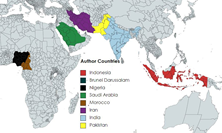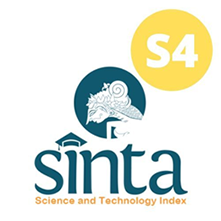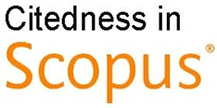Penurunan Angka Kuman Air Minum Dengan Metode Maserasi Daun Ipomoea carnea
Abstract
Drinking water is a basic necessity of living. It will be a problem if it contains microorganisms. Drinking water Standard based on WHO and the Republic of Indonesia Regulation No. 492 / Menkes / Per / IV / 2010 where microorganisms must be zero and must be processed. The society has not done drinking water treatment either chemically or by other methods. As a natural alternative, Ipomoea carnea contains active ingredients such as alkaloids and flavonoids which can be used as antibacterial subtances. The study aims to prove the extract of leaves of Ipomoea carnea in reducing the bacteriological content of drinking water source ofs springs. This research is an experimental research in the laboratory and the field. Samples in the from of sources of drinking water from springs that do not quality bacteriological with purposive sampling. Maserasi methods the extract of leaves of Ipomoea carnea with MPN Coliform test with one way anova analysis. The results obtained revealed that The results obtained revealed that consentration 0,15g/100mL samples water drinking source springs extract of leaves of Ipomoea carnea can reduce bacteriological content 80,33%.
Authors who publish with this journal agree to the following terms:
- Authors retain copyright and grant the journal right of first publication with the work simultaneously licensed under a Creative Commons Attribution License that allows others to share the work with an acknowledgement of the work's authorship and initial publication in this journal.
- Authors are able to enter into separate, additional contractual arrangements for the non-exclusive distribution of the journal's published version of the work (e.g., post it to an institutional repository or publish it in a book), with an acknowledgement of its initial publication in this journal.
- Authors are permitted and encouraged to post their work online (e.g., in institutional repositories or on their website) prior to and during the submission process, as it can lead to productive exchanges, as well as earlier and greater citation of published work (See The Effect of Open Access).











